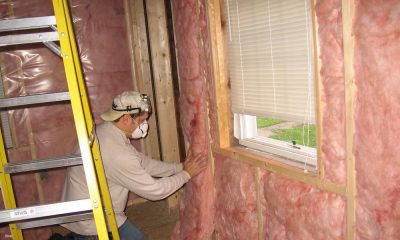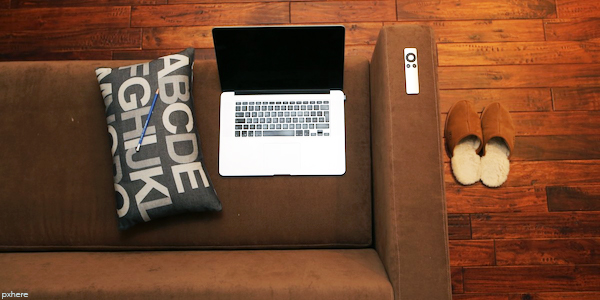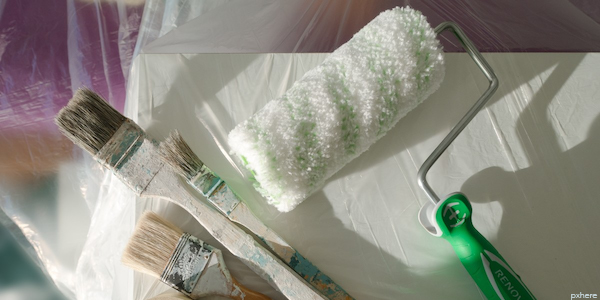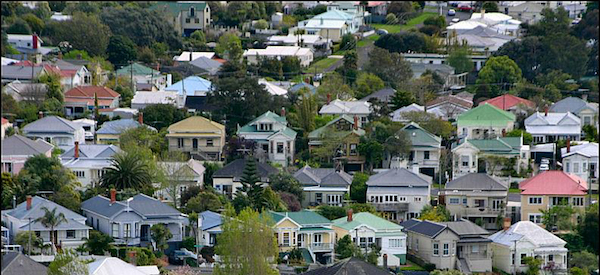General
Pre Purchase Property Check List
An essential is a pre purchase check list for buying property for investment purposes.

Below is a pre purchase check list for buying property for investment purposes.
The Location
- What is the zoning? Is it residential?
- Does the area have the amenities you need – shops, schools, transport, etc?
- Is the electricity, sewer connected?
- Are there any major developments going on in the area in the future – proposed motorway, shops, electricity corridor etc?
Land
- Is it free from filling, excess seepage of water, steep grading, dense trees, loose boulders, etc? If you are considering extensions, an engineer’s report may be necessary to access the land.
- Is it free from landslips or is it within a geothermal zoning area? Check with your local council and if necessary obtain a geo-technical engineer’s report.
- Check the lawns for puddles as these can indicate poor drainage.
Building
- Is the paintwork in good condition?
- Are the internal and external walls free from cracks & level?
- Are the roofing, guttering and down pipes in good condition?
- Is the building free from damp? Signs of damp, especially rising damp, are usually found around window sills, chimney-breasts, in ceilings and under floor coverings. Heavy condensation on windows can sometimes be a sign.
- Is the floor level and in sound condition? Using a marble is a good test for level floors. (An unlevel floor can indicate the need for foundation repair)
- Is the plaster in good condition?
- What sort of insulation do the walls and ceilings have?
- Does the house have good ventilation and natural lighting? Overgrown trees can cause dark and damp living areas.
- Turn on all the taps and check for water pressure, and that water drains away quickly.
- Turn on the lights to see if they are working. If they are not working, it may be just replacing the bulb or a more serious electrical problem.
- Check electrical wiring for condition. Many older properties were built with wiring which since install may show signs of degradation. Often power meter boards will be moved at time of repair. Always check with an electrician.
- Check number of power points and if they are suitably located.
- Establish exactly what is included in the price of the house – carpets, drapes, appliances, light fittings, etc.?
- Check that any appliances included are working: stove, air conditioning, heaters, and bathroom fans. If it has a fireplace, ask when it last had the chimney swept? If made of concrete does it show signs of cracking or does it have an internal chimney?
- Does the house have good storage?
- Will the house be expensive to maintain?
- Are doorways and passageways wide enough to move furniture through?
- EQC. Earthquake commission. Many types of council have requirements with regards to earthquake compliance. Factors to consider with earthquake compliance can be things such as multi level, age of building and construction type. Always check with your local council.
- What are the internal and exterior walls made of? Internal walls covered with scrim can be difficult to insure and be a hazard. Whilst exterior walls made of poorly constructed materials can leak or degrade quickly.
- Does the property require a warrant of fitness, fire sprinklers or council compliance certificates? Multi unit dwellings and boarding houses often require these types of regular safety checks and certification.
Bedrooms
- Will the bedrooms be affected by light and noise – are they close to a street, to street lamps, stadiums, airports, etc.?
- Are the bedrooms located so they are reasonably free from living area noise? This is often important in flatting situations.
- Is there sufficient ventilation?
- Is there a wardrobe or storage space? Will bedroom furniture fit? Does the passageway and stair cases allow ample room to move furniture into and out of rooms.?
Bathroom and toilet
- Is there sufficient ventilation?
- Is there an extractor fan to remove steam?
- Is the shower recess or bathtub free from leaks and sealed soundly?
- Is there a power point?
- Are there towel rails, cupboards, mirror?
- Is the toilet in good condition and does it flush properly?
- Is the floor and lower levels of vanity units in good condition?
Kitchen
- Are there sufficient cupboards for storage, and adequate bench space for preparing and serving food?
- Do the cupboards open and shut properly and is there room to add more?
- What is the condition of the stove? Is there an exhaust fan? Try the elements to see if they work.
- Will a regular-size refrigerator, dishwasher and/or microwave fit?
- Is there sufficient lighting and ventilation?
Dining and Living Rooms
- Will the furniture fit?
- Is there room for an extended dining room table?
- Are there sufficient power points & internet outlets?
- Is there heating? What type – gas, electric – and is it expensive to run?
- Does it have a TV aerial & satellite antenna?
Laundry
- Does it have a laundry tub?
- Is the hot water connected?
- Could a standard washing machine be installed without any problems?
- Is there room for a dryer?
- Does it have any cupboards or storage?
- Is there a floor waste (drain) or is the floor sufficiently graded so any overflow of waste can escape without causing damage?
Outside area
- Are the paths and fences in good condition?
- Is there a garage or carport? If not, can one be put on?
- How much maintenance does the garden require? Tenants don’t tend to be good gardeners.
- Are the lawns easy to mow?
- Is there a place to store lawn mowers, bikes etc?
- Can the grounds be improved? Landscaping can be a cost effective way to add value. E.g. creating an outdoor entertaining area or deck.
- Is there a pool? If so, does it comply with safety standard regulations?
- Is there plenty of off street parking? Is there space to lay pavers to park on?
- Have you checked the boundaries and fences are located on the legal boundary?
General
Growing Economy Increases Housing Demand
Auckland is New Zealand’s economic hub and with our economy set to continue to grow over the next couple of years demand for housing in Auckland will remain high. Property values in New Zealand have increased by more than 25 percent in 3 years and NZHerald also reports Auckland’s the median house has risen by 46.5% however there are investors buying Auckland residential property for less than market value.

Auckland is New Zealand’s economic hub and with our economy set to continue to grow over the next couple of years demand for housing in Auckland will remain high.
Property values in New Zealand have increased by more than 25 percent in 3 years and NZHerald also reports Auckland’s the median house has risen by 46.5% however there are investors buying Auckland residential property for less than market value.
For some investors in the Auckland property market the highly profitable property deals are apparently still out there. PropertyTutors mentoring clients have continued to buy residential property below market value in 2015. This month alone Lauren a new investor under the guidance of mentor Sean Wood bought two properties in 24 hours for less than the market price who would have thought it possible?
Also with demand for property at an all time high, investors like James and Elliot are managing to sell their properties whilst they’re still renovating them. This lowers the investor’s costs as there are no property marketing or listing fees.
Head of Trade Me Property Nigel Jeffries says the latest Property Price Index showed that while the average asking price in Auckland has risen by 20 per cent in the last year, small houses (1-2 bedrooms) had increased 24 per cent and apartments were up a “staggering” 49 per cent in a year.
Trade Me Sales Price Index
As long as our economy continues to grow, demand for Auckland housing in all its forms will be strong.
This blog article was written for PropertyBlogs by Mobilize Mail.
General
Nelson – Hot Location For Lifestyle
Baby boomers particularly those currently living in Auckland may be setting their sights on Nelson and who would blame them. Nelson offers the perfect lifestyle with a mediterranean climate, idyllic nature walks, sandy beaches, culinary delights and of course it’s one the cultural arts capitals of New Zealand too.

Baby boomers particularly those currently living in Auckland may be setting their sights on Nelson and who would blame them. Nelson offers the perfect lifestyle with a mediterranean climate, idyllic nature walks, sandy beaches, culinary delights and of course it’s one the cultural arts capitals of New Zealand too.
The house and land packages in Nelson are really too good to be true. Imagine selling your property in Auckland, capitalising on the high property values, and securing a better lifestyle in a brand new home (mortgage free) in one of the safest and friendliest places in the world! This was once a move only the wealthy could afford. Now it’s a reality for so many Aucklanders thanks to the buoyant property market.
The latest annual property sales report showed an increase in property values of 17 percent for Auckland. The average asking price for a property in Auckland starts at seven hundred and fifty thousand dollars, while in Nelson brand new home and land for sale deals start from two hundred and fifty thousand dollars.
Nelson is out of the spotlight and flying under the radar right now, but it may not last for much longer. The property market is on the move in this region with Trade Me Sales Price Index reporting property values up by over six percent during the last property sales season.
Aucklanders in their middle to late years of life will be questioning their current position. They will want to time their move so they can cash in their property equity to create a better lifestyle somewhere else; probably in New Zealand’s answer to the Med – Nelson!
This blog article was written for PropertyBlogs by Mobilize Mail.
General
Weekend Renters Trash Family Home
What can go possibly go wrong renting out your home for short term stays via a very reputable and popular online travel website? For most homeowners it all works out really well. However for this young Canadian couple it went horribly wrong.

What can go possibly go wrong renting out your home for short term stays via a very reputable and popular online travel website? For most homeowners it all works out really well. However for this young Canadian couple it went horribly wrong.
On NZHerald it was reported the young Canadian couple found out just how bad things can get when they rented out their home for a weekend. While the $875 rent was really attractive and it’s the reason so many other homeowners use the travel website Airbnb to rent out their properties on short stays, for this couple it was too good to be true.
An early txt message from a neighbour on Monday morning suggested not all was well at their home. Their weekend renters had well and truly trashed their home and caused $80,482 worth of damage to the property. Could this have been avoided? Well not entirely but like a goods trading site e.g. TradeMe where sellers and buyers build up a reputation for their trading activities the same applies on sites like Airbnb. Therefore as a renter or landlord you can review the feedback on the interested parties and make your selection based on it. It is unclear whether the Canadian couple took this action.
‘Caveat Emptor’ (buyer beware) is the lesson here – always do your due diligence on anyone interested in renting your property.
This blog article was written for PropertyBlogs by Mobilize Mail.
-

 Management5 years ago
Management5 years agoHome Insulation Requirements
-

 Investment5 years ago
Investment5 years agoAnother date NZ property investors are dreading
-

 Accounting & Finance5 years ago
Accounting & Finance5 years agoLow Interest Rates Winners and Losers
-

 Build5 years ago
Build5 years agoHow to Choose and Purchase a Suitable Property to Subdivide
-

 Management6 years ago
Management6 years agoAttracting More Business Travellers To Your Auckland Airbnb Property
-

 Investment6 years ago
Investment6 years agoWould You Be a Landlord in 2018?
-

 Tenants6 years ago
Tenants6 years agoCoworking Countdown – 4 Things to Prepare Before You Move In
-

 Renovations6 years ago
Renovations6 years agoFive easy steps to boost the appeal of your home





